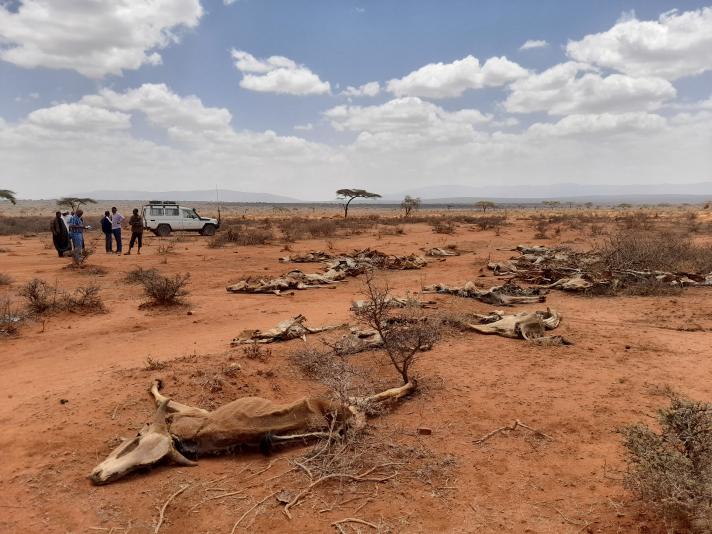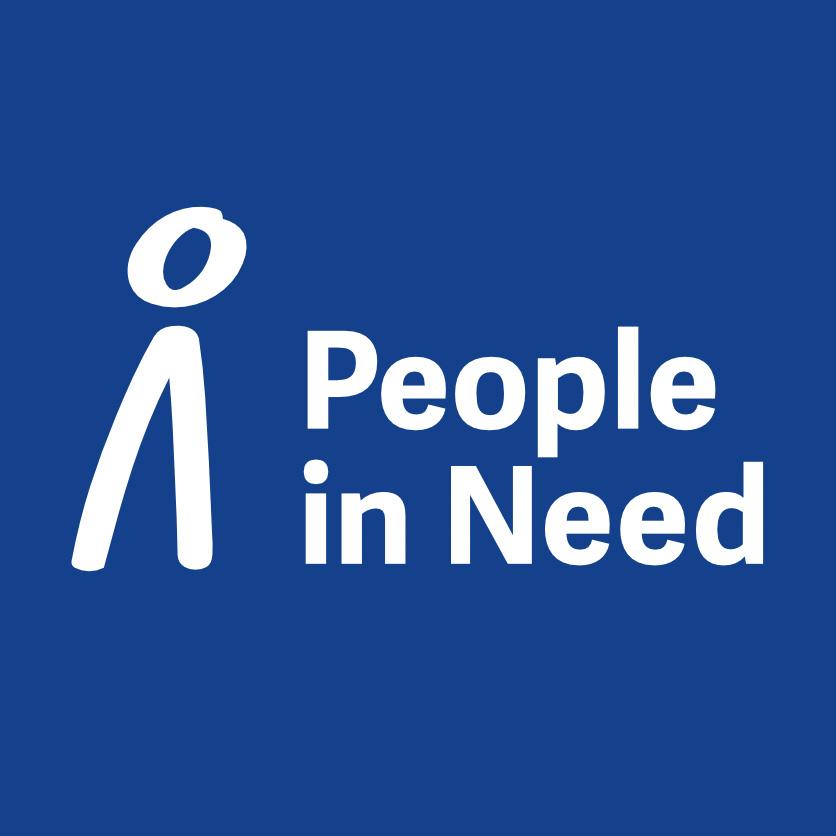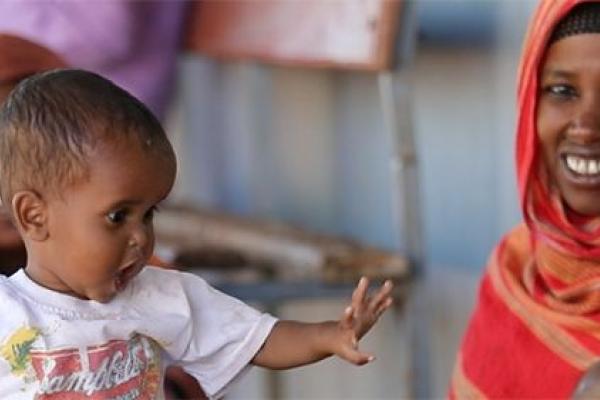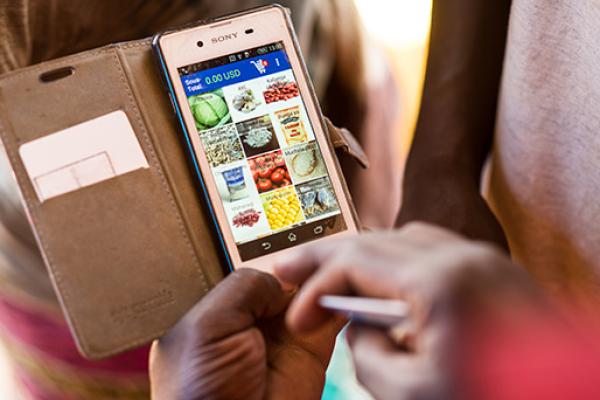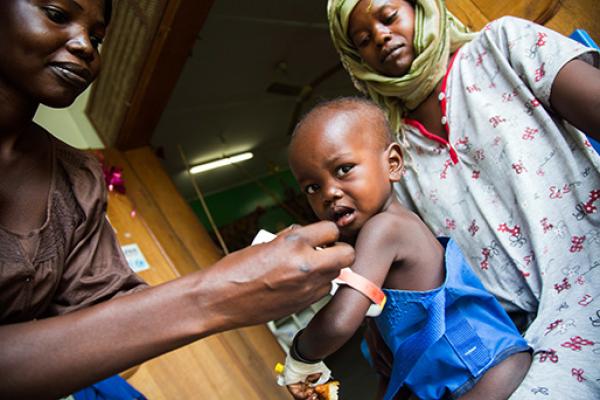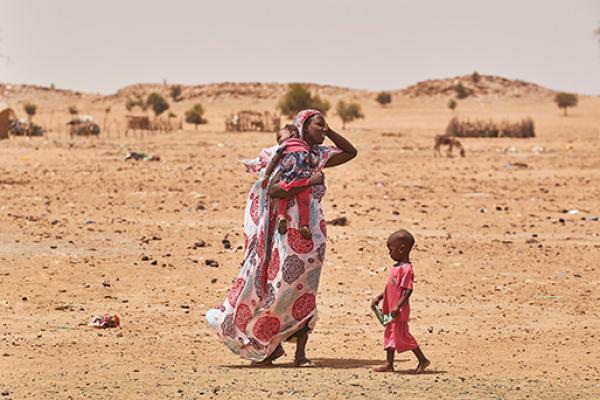The Borena zone in southern Ethiopia is an area where communities live mostly off pastoralism and, therefore, livestock, is crucial for people’s livelihood and food. Borena is also one of the areas that has been affected by the prolonged drought caused by five consecutive failed rainy seasons since 2019. The lack of rain has severely impacted the community's economic and food security. Severe drought led to the loss of many animals, causing a critical food shortage, and pushing the community to the brink of starvation.
With funding from the European Union, People in Need (PIN) has taken action to address the urgent needs and provide cash assistance to help vulnerable people in Borena rebuild their lives.
In the blog below, PIN describes how this cash assistance has supported the people in one of the rural areas in Borena.
Our team arrived in the small village of Arbala. The villagers – most of them women and the elderly – sat under the shade of a tree, waiting to collect the cash support. Once there, we gave a short information session to the gathered people, who then lined up to receive their support. For most of them, it was their only income in a long time.
The Arbala kebele (small administrative division), situated in the Dubuluk woreda (district) in the Borena zone, is recovering from a devastating drought that resulted in a dramatic loss of livestock. As a result, the Borana community is going through hardship and challenging times, as the people strive to protect their subsistence and remaining livestock.
Some of the villagers are unable to read or write. To help them, a committee, composed of members of the local community (with an adequate representation of women and vulnerable groups), was set up to ensure fairness and correctness in the selection and distribution.
We met Gelmo Duba, a 60-year-old resident of Arbala kebele. She is a single mother of 8 children who is receiving financial support. In her village, women manage household chores, fetch water from distant places, nurture children, and even build homes for their families.
“We used to walk 7 km to find leaves and pastures to feed our cattle,” Gelmo said. “This is the reason that the remaining cattle survived.”
Gelmo is a pastoralist, and she lost 50 of her cattle during the drought.
“We had nothing to eat until the cash arrived,” she says.
Jatene Dima is a member of the committee. She plays a crucial role in helping identify those in need.
“We visited every village and kebele to register the most affected community members,” Jatene explains. “We prioritise families with 2 or more children under 5, child-headed families, individuals with disabilities, bedridden individuals, and those over 65. Additionally, we consider people who have been displaced and living away from home for at least 6 months.”
She adds “We have nothing left, and life is extremely challenging. Our survival was at serious risk, making it incredibly tough to stay alive. As a result, the committee received numerous requests from the community. However, we only chose those who were most severely affected.”
It is not easy for the committee to identify the most affected community members. Since the drought was severe, reaching all those in need can be difficult. The drought is pushing malnutrition up for children and their families at an alarming rate. In Ethiopia, admission rates for treatment of severe acute malnutrition for children under five in drought-affected areas increased by 15% in just one year.
“We really needed money to purchase food,” says Gelmo. “When we got the money, we were going hungry. With the cash, I bought food for my family, sent my kids to school, and bought drought-resistant maize seeds, and planted them on my land. Now, we're eagerly awaiting the harvest.”
Thanks to the European Union’s humanitarian funding, some of the villagers have begun life anew. Many have secured food, purchased goats, and ensured their children can attend school.
After the years of severe drought, the land was blessed with rainfall for the second rainy season. The land is becoming green, and small bushes are growing. The Borana community has realised the need for – and has started to act on – alternative ways to get food and money.
Until they harvest though, they still need support to cope with the challenging times.
With support from the European Union, PIN have been able to support a total of 2,540 households in the Konso, South Omo, and Borena zones with multi-purpose cash assistance, giving people the possibility to acquire what they need most.


